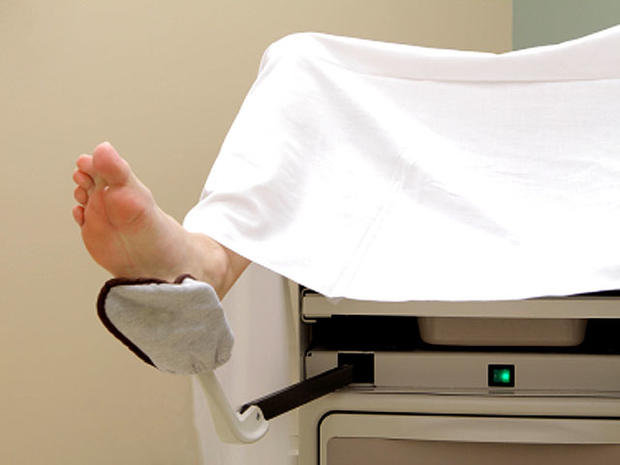Pap test still best for cervical cancer, docs say
(CBS/AP) Cervical cancer screening saves lives. But what's the best test to use?
PICTURES - Embarrassed? 13 intimate questions women ask doctors
The Pap test - a lab exam of cells scraped from the cervix, the gateway to the uterus - is an effective way to screen young and middle-aged women - and it's only needed once every three years, say scientists advising the government.
What about testing for HPV, the virus that causes cervical cancer? The same scientists say there's not enough evidence to back it up - though that's at odds with the American Cancer Society and other groups, which have long said that using both tests can be an option for women over 30.
In the U.S., cervical cancer cases and death rates have fallen more than in half since the 1970s because of Pap smears. The test can find early signs of this slow-growing cancer and treat them before a tumor has a chance to develop.
So "the bar is set pretty high" for a test to replace or supplement Paps, said Dr. Evelyn Whitlock of Kaiser Permanente Northwest's Center for Health Research in Portland, Ore.
Not enough is known about the benefits and especially the harms of HPV testing, concludes a scientific review she led for the task force that was published on Monday. The panel voted unanimously in March that there was insufficient evidence to recommend for or against HPV testing, but has continued to discuss the issue.
Here's the dilemma HPV presents: Infections with HPV, the human papillomavirus, are common, especially in young women. They usually go away on their own and only pose a cancer risk when they last a year or more. So infections might lead many women to more invasive follow-up tests that can weaken the cervix and cause child-bearing problems later.
"A lot of people use the word 'superior' to mean it catches more cancer," said Debbie Saslow, the cancer society's director of breast and gynecologic cancer. "But the other side of it is, does it catch more things that are not cancer? You have to weigh benefits versus harms for any screening test."
The evidence review finds little risk of cervical cancer in women under 21 and says screening below that age may be harmful. It also says screening can stop at age 65 if a woman has had adequate screening in the past and is not otherwise at high risk.
The review was published Monday in the Annals of Internal Medicine.

